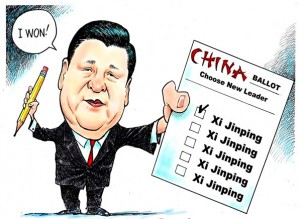Three-quarters of the way into this era of “strategic opportunity,” and we might argue that this period has already come to an end. Economically and geopolitically, the China of Xi Jinping increasingly talks and acts like an emerging super power. Xi, with his grand narratives of a “new model of great power relations” for the U.S. and China, and a “New Silk Road” for most of the rest of the planet, seems to have the look, and tone, of someone willing to stand more on the global stage and get attention.
It seems like the “era of strategic opportunity,” where the onus was on internal issues and keeping a low profile, has been replaced by a China where inward and outward context are intimately linked. For China, the pressure is now on finding “holistic” solutions where it often proactively takes the lead on the global stage and wants to be listened to.
Even so, it still makes sense to think along the lines of smaller strategic opportunities. For all his talk of “pivots” and rebalancing, President Obama has been a good president for China. He has been read as weak and overstretched and was treated with staggering disdain during his first visit to Beijing in 2009. Under Obama’s watch, we witnessed the rise of an assertive, pushy China that has been increasingly able to call the shots, at least in its neighborhood. What will happen in the US elections of 2016 is not knonw.
The same year will all bring a presidential elections in Taiwan. Like Obama, but for very different reasons, incumbent Ma Ying-jeou of the Kuomintang (KMT) has been a good ally for Beijing. He promoted economic closeness and political carefulness, significantly reducing the cross-strait tensions that existed in the eight years under Chen Shui-bian before Ma’s election in 2008.
In the space of a few months in 2016, therefore, Beijing will see the leadership of two of its key partners change, with the real possibility that this will bring about a more confrontational environment.


